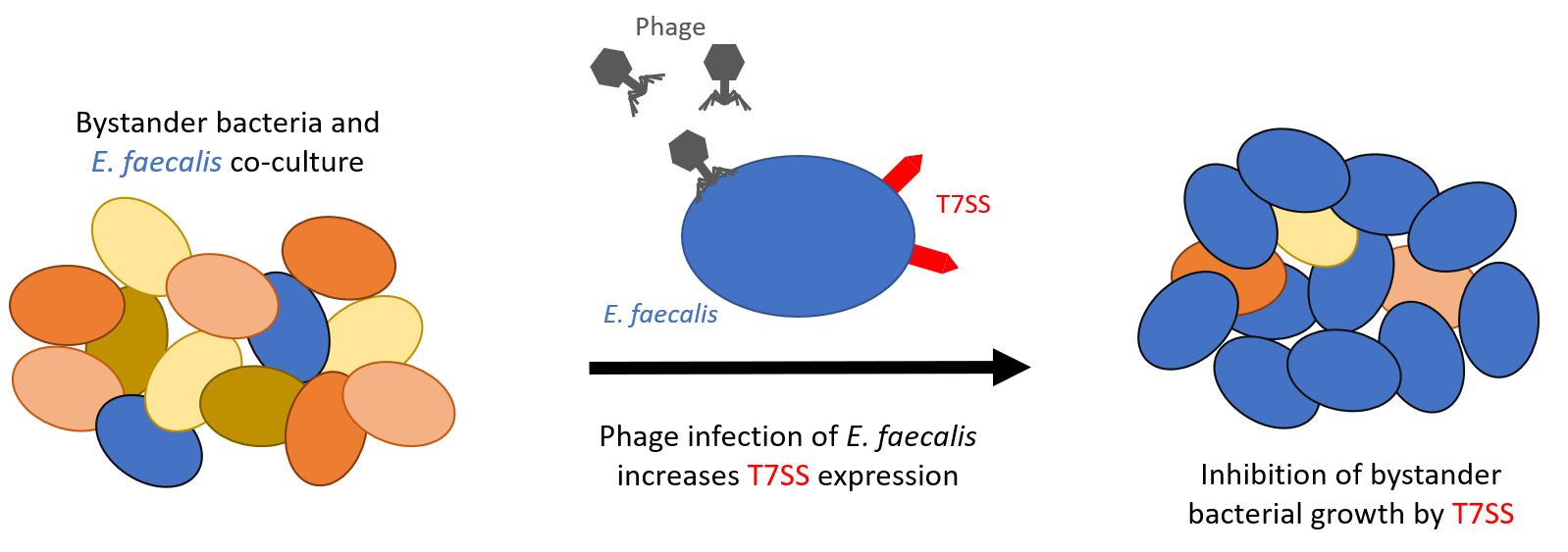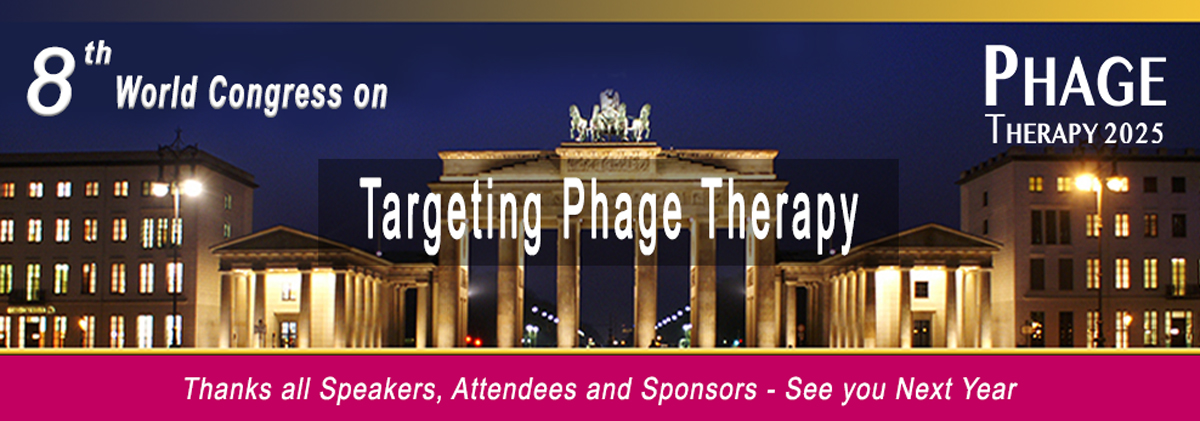Phage infection mediates inhibition of bystander bacteria Bacteriophages (phages) are being considered as alternative therapeutics for the treatment of multidrug resistant bacterial infections. Considering phages have narrow host-ranges, it is generally accepted that therapeutic phages will have a marginal impact on non-target bacteria. We have discovered that lytic phage infection induces transcription of type VIIb secretion system (T7SS) genes in the pathobiont Enterococcus faecalis. Membrane damage during phage infection induces T7SS gene expression resulting in cell contact dependent antagonism of diverse Gram positive bystander bacteria. Deletion of essB, a T7SS structural component abrogates phage-mediated killing of bystanders. A predicted immunity gene confers protection against T7SS mediated inhibition and disruption of an upstream LXG toxin gene rescues growth of E. faecalis and Staphylococcus aureus bystanders. Phage induction of T7SS gene expression and bystander inhibition requires IreK, a serine/threonine kinase, and OG1RF_11099, a predicted transcriptional activator. Our findings highlight how phage infection of a target bacterium can affect non-target bystander bacteria and implies phage therapy could impose collateral damage to polymicrobial communities.

Image source: prelights.biologists.com
News Source: www.biorxiv.org
